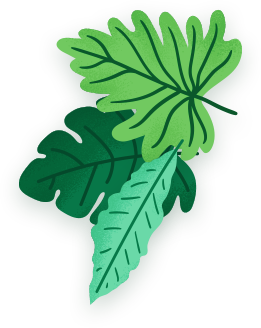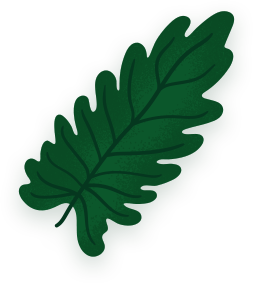Curriculum
Drybrook School uses the National Curriculum to plan and deliver lessons across the curriculum. Please follow the link below for more information on the National Curriculum.
English
Spoken Language
The national curriculum for English reflects the importance of spoken language in children’s development across the whole curriculum – cognitively, socially and linguistically. Spoken language underpins the development of reading and writing. The quality and variety of language that children hear and speak are vital for developing their vocabulary and grammar and their understanding of reading and writing. Teachers provide opportunities for continual development of children’s confidence and competence in spoken language and listening skills. Children participate in and gaining knowledge, skills and understanding associated with the artistic practice of drama.
Reading
First and foremost, we want all children at Drybrook School to develop a life-long love of reading. As a result, we approach the teaching of reading from all angles, so we do not miss any opportunity to spark a child’s interest.
The programmes of study for reading at key stages 1 and 2 consists of two dimensions:
- word reading
- comprehension (both listening and reading).
Our teaching focuses on developing children’s competence in both dimensions; skilled and fluent word reading, working out of the pronunciation of unfamiliar printed words (decoding) and the recognition of familiar printed words. Underpinning both is the understanding that the letters on the page represent the sounds in spoken words.
At Drybrook phonics are emphasised in the early teaching of reading to beginners when they start school using the LCP scheme and letters and sounds. This includes a programme of:
- Listening and aural discrimination activities for early Foundation Stage (EYFS) and Key Stage 1 (KS1).
- Grapheme (symbol) –phoneme (sound) correspondence for later Foundation Stage (EYFS) and Key Stage 1 (KS1).
- Blending and segmenting activities.
- Letter naming and alphabet knowledge activities.
We develop comprehension skills through children’s experience of high-quality texts and discussion. This is taught in both guided reading and whole class reading across the school. In Key Stage 2 children access texts using Kindles which we have found helps to boost engagement. Added to the books shared within class, we also offer extracurricular reading clubs which run before school and at lunchtime.
Teachers use a variety of high-quality texts to teach from, immersing children into books with different activities from writing and discussion to creating dance and art. In Key Stage 2 teachers help to consolidate comprehension skills by using Read Theory as this is a different way to help engage children. As a school we are involved with Reading Teachers = Reading Pupils led by the Cheltenham Literature Festival; this year-long project aims to widen the reading of the teacher and share good practice and ideas with other professionals which in turn enhances the reading of all of the children.
Children are encouraged to read widely across both fiction and non-fiction to develop their knowledge of themselves and the world in which they live, to establish an appreciation and love of reading, and to gain knowledge across the curriculum.
Writing
The programmes of study for writing at key stages 1 and 2 are constructed similarly to those for reading:
- Transcription (spelling and handwriting). The teachers use the No Nonsense Spelling scheme to enable the children to gain spelling knowledge and confidence from Year 2 onwards.
- Composition (articulating ideas and structuring them in speech and writing).
- Children are taught to develop competence in these two dimensions. In addition, children learn to plan, revise and evaluate their writing. Children are also taught to write with fluent, legible and, eventually, speedy handwriting.
- Children are taught spelling, vocabulary, grammar, punctuation as stated in the two statutory appendices of the National Curriculum which give an overview of the specific features that are included in each Year group’s programmes of study. Teachers also enhance children’s vocabulary from opportunities that arise naturally from their reading and writing.
Maths
Our philosophy is based on the mastery approach, which takes inspiration from the high achieving maths curricula of Far East regions like Shanghai, Singapore and South Korea. The aim is the mastery of mathematics for all pupils and a belief that pupils can achieve mastery of the key ideas. This is secured by through deep, long term, secure and adaptable knowledge and understanding.
For more information see the Maths Mastery page.
Drybrook School uses the White Rose Maths Hub learning schemes for mixed-age classes as the basis for our curriculum.
White Rose provides long term plans designed to support the National Curriculum and the mastery approach (depth of learning). They give a framework for how and when objectives from two different year groups can be taught in the same class. They have a number at their heart and spend a large proportion of time building competency with a number, while also providing plenty of opportunities for reasoning and problem-solving elements.
Science
The science curriculum enables children to develop scientific knowledge and conceptual understanding through the specific disciplines of biology, chemistry and physics. Children develop an understanding of the nature, processes and methods of science through different types of science enquiries that help them to answer scientific questions about the world around them. They are also equipped with the scientific knowledge required to understand the uses and implications of science, today and for the future.
Art
Children are taught to produce creative work, explore their ideas and record their experiences. They are given opportunities to become proficient in drawing, painting, sculpture and other art, craft and design techniques. Children are also taught to evaluate and analyse creative works using the language of art, craft and design and know about great artists, craft makers and designers, and understand the historical and cultural development of their art forms.
Computing
The computing curriculum ensures that children can understand and apply the fundamental principles and concepts of computer science, including abstraction, logic, algorithms and data representation. Children are taught to analyse problems in computational terms and have repeated practical experience of writing computer programs in order to solve such problems. They are also taught to evaluate and apply information technology, including new or unfamiliar technologies, analytically to solve problems and become responsible, competent, confident and creative users of information and communication technology.
Design Technology
Children are taught to develop the creative, technical and practical expertise needed to perform everyday tasks confidently and to participate successfully in an increasingly technological world. They are taught to build and apply a repertoire of knowledge, understanding and skills in order to design and make high-quality prototypes and products for a wide range of users. Children critique, evaluate and test their ideas and products and the work of others and understand and apply the principles of nutrition and learn how to cook.
Geography
The curriculum for geography aims to ensure that all pupils develop contextual knowledge of the location of globally significant places – both terrestrial and marine – including their defining physical and human characteristics and how these provide a geographical context for understanding the actions of processes. They are taught to understand the processes that give rise to key physical and human geographical features of the world, how these are interdependent and how they bring about spatial variation and change over time and become competent in the geographical skills needed to:
- collect, analyse and communicate with a range of data gathered through experiences of fieldwork that deepen their understanding of geographical processes
- interpret a range of sources of geographical information, including maps, diagrams, globes, aerial photographs and Geographical Information Systems (GIS)
- communicate geographical information in a variety of ways, including through maps, numerical and quantitative skills and writing at length.
History
Children will know and understand the history of these islands as a coherent, chronological narrative, from the earliest times to the present day. They will learn the significant aspects of the history of the wider world. Children will also learn to understand historical concepts such as continuity and change, cause and consequence, similarity, difference and significance, and use them to make connections, draw contrasts, analyse trends, frame historically valid questions and create their own structured accounts, including written narratives and analyses. They will understand the methods of historical enquiry and gain historical perspective by placing their growing knowledge into different contexts.
Languages
Children will understand and respond to spoken and written language from a variety of authentic sources and in a variety of different languages, however, they will follow a programme of study in Spanish across the school. Children will speak with increasing confidence, fluency and spontaneity, finding ways of communicating what they want to say, including through discussion and asking questions, and continually improving the accuracy of their pronunciation and intonation. They can write for different purposes and audiences, using the variety of grammatical structures that they have learnt and discover and develop an appreciation of a range of writing in Spanish.
Music
Children will perform, listen to, review and evaluate music across a range of historical periods, genres, styles and traditions, including the works of the great composers and musicians. They will learn to sing and to use their voices, to create and compose music on their own and with others. They will also explore how music is created, produced and communicated, including through pitch, duration, dynamics, tempo, timbre, texture, structure and appropriate musical notations.
PE
Children will be taught to develop competence to excel in a broad range of physical activities. They will be physically active for sustained periods of time, engage in competitive sports and activities and lead healthy, active lives.
For more information on how the school uses the Sports Grant Funding look in the ‘Our School’ section.
PSHE
PINK - People in the Know - Gloucestershire PSHE & Safeguarding Curriculum.
The PINK Curriculum has been written by the Healthy Living and Learning team of Lead Teachers to meet the needs of all children and young people in Gloucestershire in primary, secondary and FE settings; it is a ‘work in progress’, which will be updated and revised frequently. Its aim is to support the development of the necessary skills and knowledge that our children need to lead a happy, safe, healthy life.
For more information about the PINK curriculum please click here.
RE
RE is an important curriculum subject. It is important in its own right and also makes a unique contribution to the spiritual, moral, social and cultural development of pupils and supports wider community cohesion. The UK has a rich heritage of culture and diversity. This is continuing today in an era of globalisation and an increasingly interdependent world. Religion and belief for many people form a crucial part of their culture and identity. The UK has a rich heritage of culture and diversity. This is continuing today in an era of globalisation and an increasingly interdependent world. Religion and belief for many people form a crucial part of their culture and identity.
The school follows the Gloucestershire Agreed Syllabus for planning and delivering the RE curriculum. For more information click here.
For more curriculum information please contact the school at admin@drybrookschool.co.uk.



